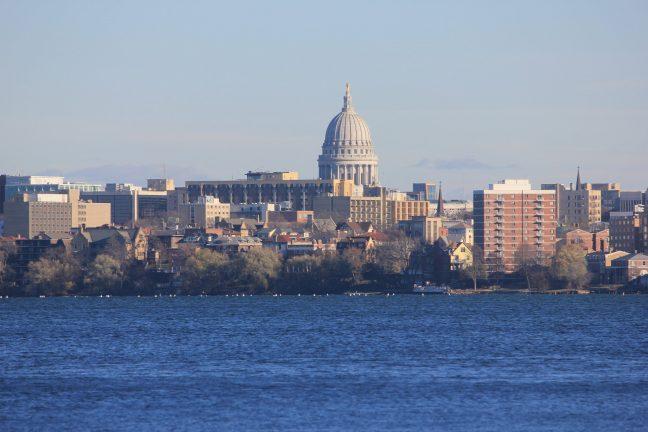If approved by the Public Service Commission, Madison Water Utility’s residential customers could see their monthly bills increase, the City of Madison reported.
Amy Barrilleaux, a spokesperson with MWU, said this increase only applies to Madison Water Utility’s charges on the Municipal Services Bill, which accounts for about one-third of the total bill. Other charges — like sewer, stormwater, landfill and urban forestry — are not levied by MWU.
The leading cause for this increase, according to the City of Madison, is aging water mains. Barrilleaux estimated that of the 900 miles of underground post-WWII era water mains in Madison, 300 must be replaced at a cost of about $1.5 million per mile.
Barrilleaux said MWU has already replaced 100 miles of aging water mains since 2005 but because only about ten miles of mains can be replaced each year, replacing 300 more is a long-term goal.
“One decade of replacements down, three more to go,” Barrilleaux said.
But executive director of the Citizens Utility Board Tom Content said there are other key drivers for raising rates beyond replacing mains, and CUB has serious concerns.
Content said one main escalator in MWU’s capital expenditure and increase in rates has to do with their financing these improvements with debt which has in turn caused its debt service payments to spike and created an increasingly disproportionate debt-to-equity ratio.
According to Content, between 2013 and 2018 MWU’s annual debt service payments nearly doubled, from roughly $9.2 million to $17.8 million. Currently, MWU’s cash reserves are less than what is required by its bond covenants, and at current revenues, it cannot issue new bonds for unexpected capital improvements.
“Right now, Madison Water Utility is borrowing heavily to pay for these projects, and that ends up saddling customers with high debt payments,” Content said. “If the Utility were on more of a pay-as-you-go system, the overall costs to customers over time wouldn’t be as high.”
Content said payment in lieu of taxes — sums paid to the local Madison government for the non-taxable land that MWU occupies — are also going up.
MWU’s estimated PILOT for 2018 was over $7, accounting for 16 percent of its total revenue requirement. This money is essentially collected from the water bill to fund city services rather than water utility services, Content said.
Content said the Public Service Commission has raised concerns about the high PILOT assessments, which make it hard for Wisconsin’s water utilities to pay for needed work to replace aging infrastructure.
“CUB has serious concerns about the utility’s construction cost overruns, its ability to manage the growth of other revenue requirement cost drivers — including PILOT costs — and ratepayers’ ability to shoulder future additional large rate increases,” Content said.
As MWU has only scratched the surface of a 40-year project, rates are not expected to drop significantly anytime soon, Barrilleaux said.
UW landscape architecture professor Kurt Paulsen said water utility companies everywhere are facing the issue of aging pipes and the need to replace them, and that an increase in rates will be widespread.
“When people hear about this increase they ask ‘Why? Out of sight out of mind, it works today,’” Paulsen said. “But if you pay a little bit every year to rehabilitate and repair, you will have fewer problems later on. Unfortunately, nobody wants to pay to use something they already have.”
While bills are expected to go up for every type of customer — including homeowners, businesses, and renters in duplexes and apartment buildings — the direct impact on UW students is yet to be determined.
If a student is renting an apartment, the increase in cost will depend on whether or not water is included in monthly rent or if it is a variable cost dependent on how much is used per month. If landlords have to pay more, they will shoulder the cost onto students who are renting the apartment, Paulsen said.
Still, Barrilleaux said water costs in Madison will remain relatively low in comparison to other municipalities in the state and to other utilities like gas, electric, cable and sewer.
“Water is relatively cheap,” Paulsen said. “We get clean water from the tap and can flush our waste for mere pennies. The best deal you’ll ever get is municipal water. “


